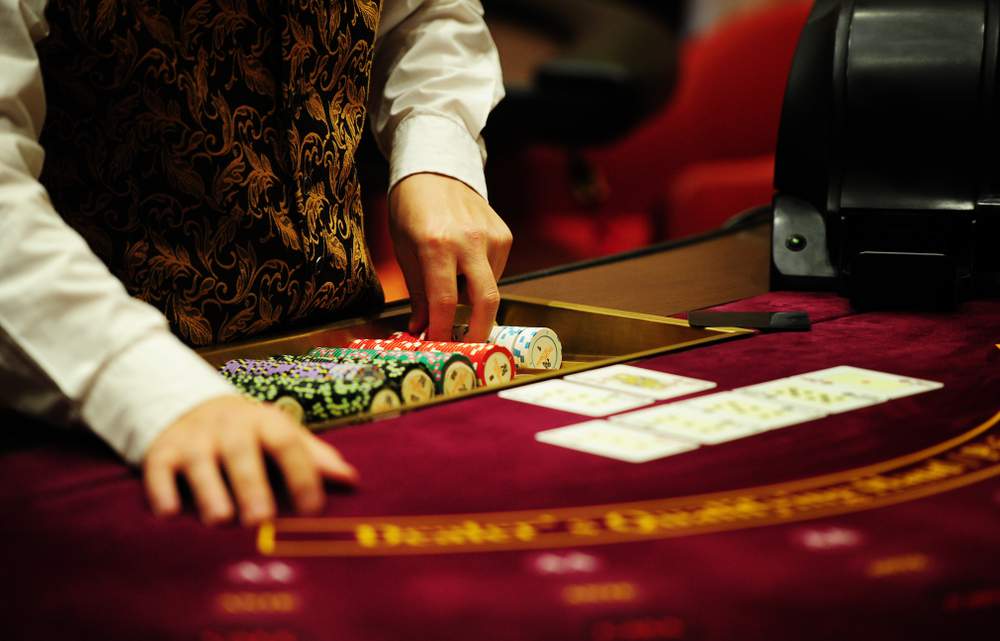

Cheating has been intertwined with the history of most casino games since they were invented. For a while, though, roulette games were considered hard to beat.
Albert Einstein, who famously studied roulette to try and beat the casinos, even said that cheating in roulette was almost impossible. He said the only way you could win was by stealing chips when the dealer wasn’t looking.
Although roulette cheaters do use that method to this day, many other methods of cheating have since been developed and are used regularly in casinos all around the world.
As things have advanced, many of the methods people use aren’t strictly legal and are generally frowned upon within the casino world itself.
Even so, some people find the opportunity of winning big and increasing their odds too difficult to resist.
If this sounds like you, or if you are simply curious about how roulette cheating works, this article will tell you everything you need to know.
In addition to discussing the most popular methods used by cheaters, we will also provide you with examples of some people who were caught in the act.
How People Cheat At Roulette

As mentioned, the risks involved in cheating in roulette are enough to put most people off, but not everyone.
For those who continue trying to outsmart casinos, the methods used have expanded and become more intricate over time.
Now, instead of focusing on the chips themselves, some people have even started modifying aspects of the game to increase their chances of winning and reduce the house edge.
Although some experienced roulette cheaters will use methods they’ve created or adapted, here are the most common methods used by those interested in trying this for themselves.
Wheel Modification
Wheel modification, sometimes known as wheel gaffing, involves modifying the roulette wheel in a way that makes spins more predictable.
One way to do this involves loosening parts of the wheel, which causes the ball to bounce less in certain areas. As a result, it leads to wheel bias, where specific numbers will spin more than others.
It’s worth noting that this is only a temporary thing, however, as a casino’s automated software will eventually detect this bias.
With that being said, if you know where the wheel bounces least, you will be able to take advantage of it in the time it takes the casino to find out about the change.
Magnetic Balls

With CCTV a top priority for casinos in recent decades, using the magnetic ball method is rarely done and extremely difficult to pull off, but some roulette cheaters will still try.
To put it simply, this method involves replacing the real ball with a magnetic alternative so that the cheaters can influence the behavior of the ball through the use of magnetic pulses.
Interestingly enough, those that have attempted this method rarely use fully magnetic balls as it would then stick to any metallic object.
Instead, people tend to use a ball that contains a coil with special diodes on it.
Using this method, the cheater observes where they expect the ball to land when the ball falls onto the rotor.
If it doesn’t land where the cheaters expect, the parts inside the ball are activated to move the ball into the correct area for the cheaters to win their bet.
This entire process happens very quickly, meaning it doesn’t cause interference with the casino’s electric systems, making it harder to catch those guilty of doing it.
Past Posting
Past posting is a method of cheating that involves people changing their bets after the outcome has occurred.
Say you’re wagered $20 on a single number using four $5 chips, and you notice you’re going to win. You’d want to change your bet to receive more of a reward, right?
Those who do past posting will do just that, using sleight-of-hand to replace one of the $5 chips placed with a $20 chip, drastically increasing the total win amount.
This is extremely risky as croupiers watch out for this behavior in particular.
Even if croupiers do miss your behavior, CCTV operates in most casinos to prevent past posting from happening, so it’s unlikely you would regularly get away with this one.
Sector Targeting

Sector targeting is a way of cheating in roulette that is difficult to get 100% right; there is still an element of luck involved for those daring enough to try it.
This is because it’s based on a theory that, while possible, is too difficult for our brains to compute; especially with the added pressure of being in a casino environment.
Basically, the theory focuses on a player being able to work out where the ball passes a certain point on the roulette wheel after a couple of spins.
If one can do this, the theory dictates that one should be able to work out when the ball will slow down and use this to predict the segment of the wheel in which the ball is likely to land.
Unlike other methods used by roulette cheaters, sector targeting isn’t legal in itself, and it’s very difficult to prove if someone’s using this tactic to increase their chances of winning.
Laser & Microcomputer
While this is another method not so commonly used, some seasoned fraudsters believe they can use a device with a laser that estimates the speed of the ball and the wheel.
Once they have this information, they feed it back to their devices—such as a mobile phone or computer—and receive information about where the ball might land.
Although some people are skeptical of this method, some big roulette cheaters were found to succeed using this method.
Collusion
Another way to potentially cheat at roulette would be to befriend the dealer and, over time, convince him or her to provide more leniencies for your bets.
This collusion could include the dealer allowing certain players to place a bet later than would usually be allowed so that a person has an idea of the outcome.
It may also go as far as mistakenly paying out for bets that didn’t even win to directly benefit their friend.
This is another method of cheating that would only work temporarily, however, as there are significant casino security measures in place to present this.
If the dealer was caught colluding with a player, chances are both parties would receive significant penalties.
At the least, this would include the dealer losing his job and both people receiving a lifetime ban with said casino. At worst, it could lead to both people being prosecuted.
Computer Software

In the digital age, you may have thought that online casinos worked hard to avoid people cheating on their websites.
Like with land-based casinos, however, people are knowledgeable and will use this to develop ways of cheating the system.
Provided that the online casino where someone is playing doesn’t use a random number generator, which you should avoid anyway, then you can cheat.
This is done using computer software that can identify biased wheels or predict winning numbers ahead of time.
Due to the fact that the world of online casinos is so badly regulated, using computer software to gain an edge over the house isn’t actually illegal, but it may result in a permanent ban from the site if you’re caught.
Roulette Cheaters Who Were Caught
 It’s difficult to deny that cheating in roulette games doesn’t sound glamorous. However, it is important to remember that cheating comes with a significant level of risk that most wouldn’t choose to take.
It’s difficult to deny that cheating in roulette games doesn’t sound glamorous. However, it is important to remember that cheating comes with a significant level of risk that most wouldn’t choose to take.
The only place where cheating in roulette isn’t strictly illegal is on casino cruise ships in international waters, and that is only because there are no laws on the high seas at all.
In all other countries, cheating at roulette and other casino games comes with a high risk of punishment and prosecution if you’re caught.
In one of the gambling capitals of the world, Las Vegas, for example, cheating is considered a state felony.
You might think the chances of being caught are slim, especially if you are a seasoned professional, but this isn’t the case.
Even groups, like the Serbian Team we will describe below, ended up being caught when trying to reap their rewards.
While cheating at roulette is your choice to make, we hope these stories will open your eyes to the potential consequences that can occur if things don’t go to plan.
Serbian Team
In 2014, two technologically competent Serbian men and a Hungarian woman used mobile phone laser scanners connected to computers to predict where the roulette ball would land.
This method involved using a mobile phone equipped with laser technology to decipher the speed of the ball.
The data was then fed back to the computer, who provided the three with the information they needed to make the most appropriate bet.
Although this method isn’t foolproof, it’s a common method used by cheaters in casinos, and can have catastrophic consequences from the casinos themselves.
The Ritz Casino in London, where this took place at the time, lost a total sum of £1.3 million (USD$1.568 million approx.) to the fraudsters, who were later penned the Serbian Team.
£300,000 (USD$361,864 approx.) of this sum was provided to them in cash, with a cheque given for the rest.
Astonishingly enough, despite their clear breach of casino rules and legislation around the world, they left court with no charges against them.
Understandably, however, the three players have since received a lifetime ban from The Ritz Casino where this event took place.
Richard Marcus
Richard Marcus is somewhat of a legend among roulette cheaters, having started his career as a croupier in Las Vegas in 1976.
It wasn’t long before he found his skills best lay with roulette gambling. In that capacity, he enjoyed a 20-year career before retiring.
For most of this time, he used past-posting, which involved working with several other roulette cheaters to place bets once the outcome had already occurred.
In some of the most successful weekends of his career, he was earning $100,000.
Eventually, casinos caught onto the network of cheaters that surrounded Richard Marcus and invested in CCTV to protect themselves from being further fleeced.
This didn’t stop him, however; instead, he became creative, inventing his own way of cheating called ‘Savannah’.
Named after his favorite Vegas stripper, this simply involved concealing a large bet under two $5 chips to fool the dealer into thinking a $15 bet had been made.
In reality, the chip on the bottom was worth $5000, and if he won, he would reveal the larger chip.
If he lost, all he had to do was get back the three chips and replace them with three real $5 chips.
This got around security as it showed that the chips were there the whole time, making his wins legitimate.
It was this hidden chip tactic that gave Richard Marcus the last five years of his career before he retired after having acquired a healthy $12 million in winnings without ever having been arrested.
Although he wasn’t caught while actively taking money away from casinos, Richard’s past did eventually come out when he decided to change his career.
He hasn’t faced prosecution, but his knowledge is seen as invaluable to casinos who now hire him to train security personnel in order to avoid another Richard Marcus situation in the future.
Summary
Despite early predictions made by Albert Einstein about the durability of roulette against hacking, it’s clear to see that it is no longer the case.
Since his prediction, methods like wheel modifying and past posting have become extremely popular by roulette cheaters who wish to make a quick buck from gambling.
Those who thought protection against cheaters might be more secure once online casinos introduced roulette were wrong, too. Computer programmers quickly created programs that can make predictions humans are incapable of making.
Despite this seemingly positive overview of the cheating world, however, it is important to remember that cheating can bring significant consequences on the cheater and the casino itself.
This could include prison sentences, astonishing fines, or having your bank account frozen so you’re financially insecure during investigations.
In some cases, though, the legal route may not be an option, you could be forfeiting your ability to play in a land-based or online casino ever again.
Ultimately, whether you take this risk is completely up to you, but we implore you to carefully weigh the pros and cons beforehand.




